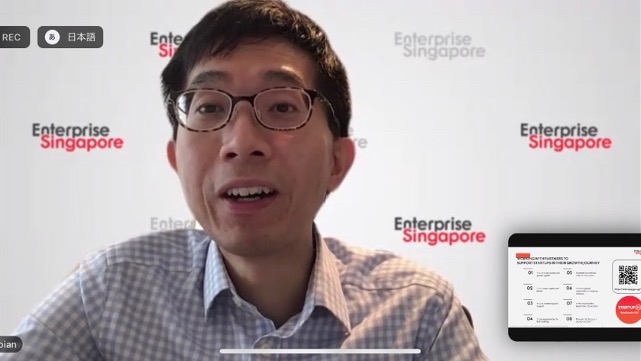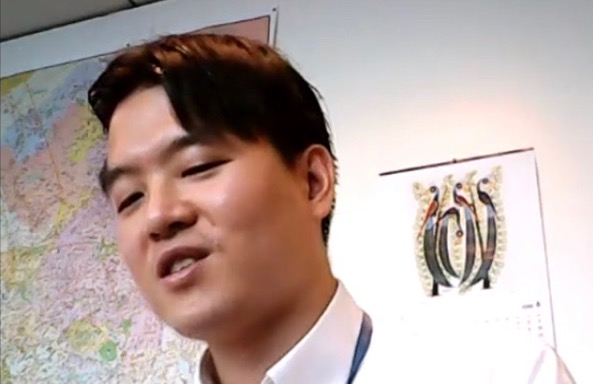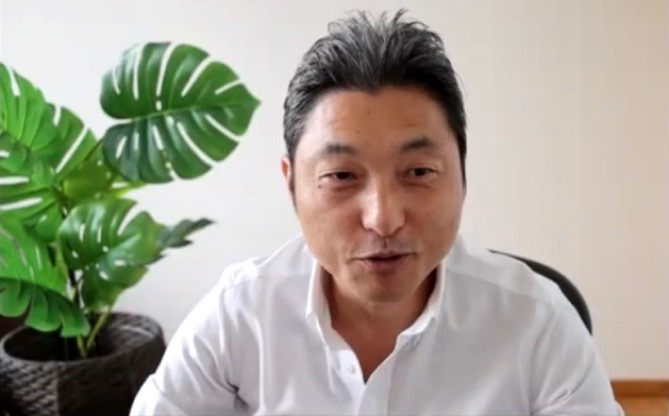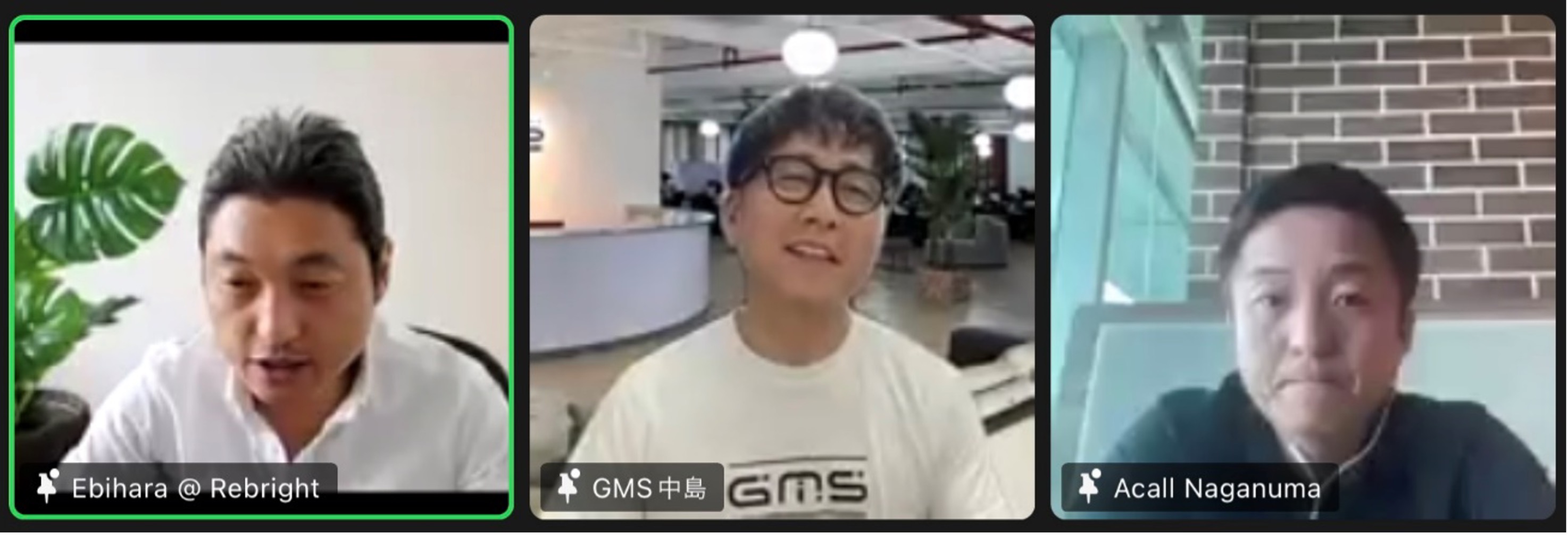X-HUB TOKYO, which supports overseas expansion of Tokyo-based startups, held #1 Overseas Expansion Seminar “Entering Asian Markets: Overseas expansion to Singapore and Manila” on June 29. The seminar focused on the markets of Singapore and Manila, sharing the latest information that Japanese startups should know when seeking to expand into these markets.
At the beginning of the seminar, Mr. Tan Fabian, Counsellor (Commercial), Singapore Embassy in Tokyo and Regional Director of Northeast Asia and Oceania, Enterprise Singapore, and Mr. Akihiko Yoshida, Director of JETRO Manila Office, gave an overview of the respective startup ecosystems and industry characteristics of the two countries, as well as support available for companies entering the these markets.
In the latter half of the session, Mr. Takeshi Ebihara, Founding General Partner of Rebright Partners Pte Ltd., explained methods to expand into Singapore and Manila, followed by a panel discussion. The panelists were Mr. Yoshihisa Naganuma, CEO of ACALL Inc., and Mr. Tokushi Nakashima, President/CEO and Founder of Global Mobility Service Inc. They spoke about his experience of expanding overseas to Singapore and Manila, the secrets of success, and the challenges he faced.
Introduction to the Ecosystem of Singapore and Manila

- First, Mr. Tan Fabian of Enterprise Singapore, a government agency that supports the formation and revitalization of Singapore’s startup ecosystem, will give a presentation on the characteristics and attractiveness of Singapore’s startup ecosystem.
-
In recent years, Singapore has been attracting attention from around the world as a place where innovation is born. According to a report by Startup Blink, a company that maps startups around the world, Singapore was named the best ecosystem in Asia in 2022.
To give you an overview of Singapore’s startup ecosystem, it is home to more than 4,000 technology startups and has spawned more than 30 unicorns to date. Recent trends include an increase in business-to-business companies, as well as the rise of startups in e-commerce, mobility, and deep tech.
From a human resources perspective, Singapore is home to world-class research institutes and universities, including the National University of Singapore and Nanyang Technological University, and foreign nationals account for about one-third of the country’s total population. This concentration of talented people from all over Southeast Asia is a major attraction for both domestic and foreign companies and startups.
- What kind of support and assistance is available to Japanese startups when expanding into Singapore?
- When a Japanese startup expands into Singapore, it is very important to network locally. We encourage you to participate in startup-related events and mentorship programs. For example, every year we at Enterprise Singapore organize SWITCH, a public-private platform in Singapore that gathers cutting-edge innovation cases from around the world and attracts many venture capitalists and government officials. In addition, there are many other support organizations that already have strong local networks, such as Japanese VC firms and JETRO Singapore. We encourage you to take advantage of the various support services available to you.

- Next, Mr. Akihiko Yoshida, Director of JETRO Manila Office, will give us an overview of the Philippines and the characteristics of its ecosystem.
-
As you all know, the Philippines is one of the countries with the highest economic growth rate in Southeast Asia. It is expected to continue to grow sustainably, supported by its abundant population of approximately 110 million people and its young demographic composition with an average age of 25.7 years. Traditionally, many Japanese companies in the manufacturing sector have expanded into the Philippines, but recently more and more companies dealing with renewable energy and real estate have started to expand their operations.
As for the Philippine eco-system, it is still in the process of formation even within ASEAN. However, I personally feel that there is an attractive growth potential and room for growth. Currently, there are about 1,500 startups in the country, and the amount of investment is growing steadily. One of the most significant features is the large number of investments in fintech-related startups, especially those involved in the lending industry. In the Philippines, the percentage of citizens owning bank accounts remains low, so many companies that utilize digital technology to provide financial services are active in the country.
- Thank you very much. Now, please tell us about support available to companies entering the Philippines.
-
Startup support organizations in the Philippines can be divided into three main categories: government-affiliated, conglomerate-affiliated, and others. Regarding government-affiliated organizations, the QBO, which is under the Department of Trade and Industry, focuses on startup support. On the other hand, conglomerates have an extremely large presence in the Philippine economy, and the country’s major conglomerates, such as the Ayala Group, SM, and Gokongwei, actively support startups that have a strong affinity with their respective businesses. In addition, the Philippine chapter of Endeavor, a worldwide network of entrepreneurship support communities, was established in 2015, and a startup ecosystem is being fostered.
In addition, the Philippine government has passed a number of laws in recent years to strengthen the startup support system. The “CREATE” (Corporate Recovery and Reform of Tax Incentives) Act is a particularly noteworthy move, which lowered the Philippines’ corporate income tax rate from 30% to 25%, which was considered the highest in Southeast Asia. Innovative startups may also be able to eligible tax benefits under this law.
Although the Philippines still faces many social issues, it has the potential to become an attractive business opportunity. There is a good possibility that Japan’s excellent services will spread throughout the country, and we hope that you will consider expanding your business to the Philippines.
How to Draw Up a Business Strategy for Startups Aiming to Expand into Singapore and Manila

- Next, we will talk to Mr. Takeshi Ebihara, Founding General Partner of Rebright Partners Pte Ltd., which invests in startups in Singapore, six major Southeast Asian countries, and India.
- First of all, Singapore, which can be called a financial hub, attracts a large number of investors. It is also characterized by its well-developed corporate and tax laws, as well as its well-developed back-office functions. For this reason, it is becoming the industry standard to “register in Singapore” when expanding business in Southeast Asia.
Singapore is also a recommended destination in terms of fund-raising. Singapore is home to a large number of venture capitalists, from domestic VC firms to some of the world’s leading institutions, and it should be noted that there are more investors at the later stages of growth in Singapore than in Japan.
Manila, the Philippines, on the other hand, is most attractive because of its potential for future growth. Although the presence of startups is modest at this point, e-commerce for consumers is growing rapidly in the country, and the Philippines has become the largest country in terms of the growth rate of e-commerce worldwide in 2022. This is due to the Philippines’ very young population and rapid digital penetration.
- What is your advice on how to expand overseas in Asia?
- Even though Southeast Asia is regarded as a single region, the cultures in each region are very different. Also, in Asia, you have no choice but to have existing business infrastructure. Therefore, there are many countries where digital native innovation is likely to happen faster than in developed countries. Keeping in mind this vastly different environment from Japan, we recommend that you work on your business with venture capitalists, support organizations, and others who are familiar with local conditions.
If you are aiming for overseas expansion, it is also important to team up with members who have global knowledge and experience during the start-up phase. Overseas business is only possible when there is a local team that is fully immersed in the region and has decision-making authority, and first and foremost, it is important to actually go there and try things out. I encourage everyone to be proactive and take on new challenges.
Methods of expansion and secrets of success in Singapore and Manila

- Lastly, let’s move on to the panel discussion part. As panelists, we have invited Mr. Yoshihisa Naganuma, CEO of ACALL Inc., and Mr. Tokushi Nakashima, President/CEO and Founder of Global Mobility Service Inc. First of all, please introduce yourselves.
- Mr.Naganuma: With offices in Tokyo, Kobe, and Singapore, ACALL is developing cloud services that support the way people work. Our vision is to create a society and world where people can freely design their “life” and “work” and to date, more than 7,000 companies and 480,000 users have used our services. As for overseas expansion, we established a subsidiary in Singapore in 2021, and are currently expanding our business in Malaysia and India. As a first step to globalize our organization and products, we decided to expand to Singapore because it was geographically and culturally challenging, and also because of its convenience as a regional access hub to Southeast Asia.
Mr.Nakashima:We combine mobility, IoT, and FinTech to provide financial inclusion services to people who previously had no access to financial services, Since its founding in 2013, the company has expanded its operations in the Philippines, Cambodia, Indonesia, and Japan, offering FinTech services that enable low-income cab drivers and delivery drivers who would otherwise be unable to qualify for a loan to purchase a vehicle.
- What challenges have you faced in expanding your business overseas, and what do you expect support institutions to do to help you solve them?
- Mr.Naganuma: As we expand our business in Asia, we are finding it difficult to determine how to identify the characteristics and colors of each country, even within the same region, as they differ greatly. For example, we are conducting local surveys and web marketing for future service development, but it takes more time to acquire data than we had imagined, and we are keenly aware of the limitations of our own capabilities alone. That is why we would like to promote collaboration with local partners in the future.
We are also very grateful for the support we have received from JETRO and many others when we faced these challenges. We would be very grateful if you could encourage us to do so, as it will become more important to access local communities from a long-term perspective in the future.
Mr.Nakashima:We have been doing business overseas for about nine years, and have had many experiences. In Manila, in particular, it was very difficult to gain the understanding of the authorities because the business we were trying to start did not yet exist in the world. We also realized that we needed more in-depth local information when we actually had to face tax, legal, and labor-related risks.
As for external support, we are also very grateful to JETRO and the embassies for the help they provide us on a daily basis. If there is one thing we would like to ask for in the future, it would be if they could work with us in the field when troubleshooting, etc., it would be very reassuring.
- Thank you very much. Lastly, what are the secrets of success in overseas expansion, and do you have a message for those who are looking to expand overseas?
- Mr.Nakashima: The key to overseas expansion is how well you can form local networks. What I would like to recommend is to join Endeavor, an entrepreneur support community, as Mr. Yoshida, Director of JETRO Manila Office, mentioned earlier. We have received a lot of support from the people we have connected with through Endeavor in our overseas expansion.
As I have said many times before, once you have researched a country thoroughly and decided to expand, even considering the risks involved, all you have to do is step on the pedal as hard as you can. I would like to encourage everyone to do their best, while remembering to localize your business with an eye on the future of the local market!
Mr.Naganuma: I have moved to Singapore to conduct business, and I personally feel that having the CEO or representative director himself at the overseas base will allow him to reflect the feedback he gets from the local market in his business and services. Also, only the CEO or representative director can speak passionately about “why we want to expand overseas” and “what kind of vision we want to realize”. Therefore, I hope that you will cherish these passionate thoughts and boldly take on the challenge!
- In this event, we introduced the features and attractions of the Singapore and Manila markets. X-HUB TOKYO will continue to provide the latest information on the characteristics and attractiveness of overseas startup ecosystems, as well as the latest trends in open innovation in Japan and abroad.

